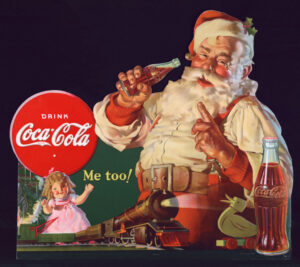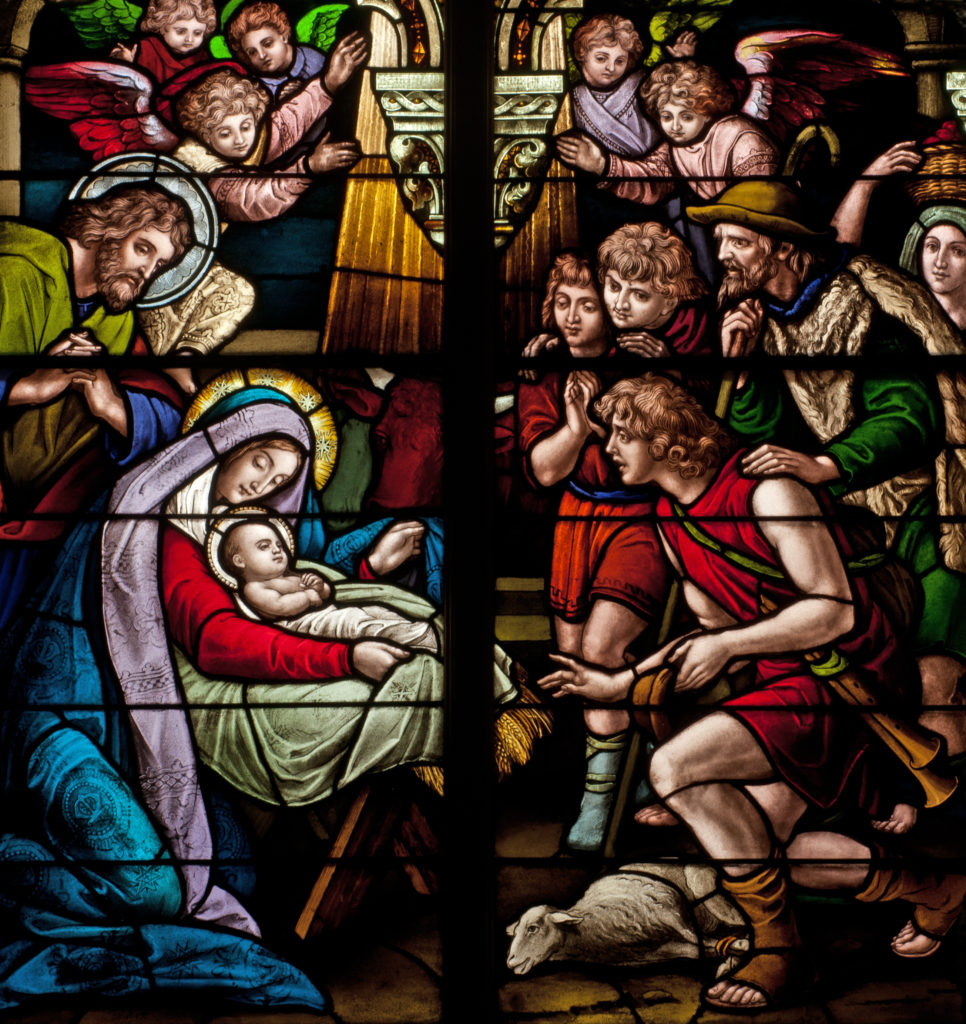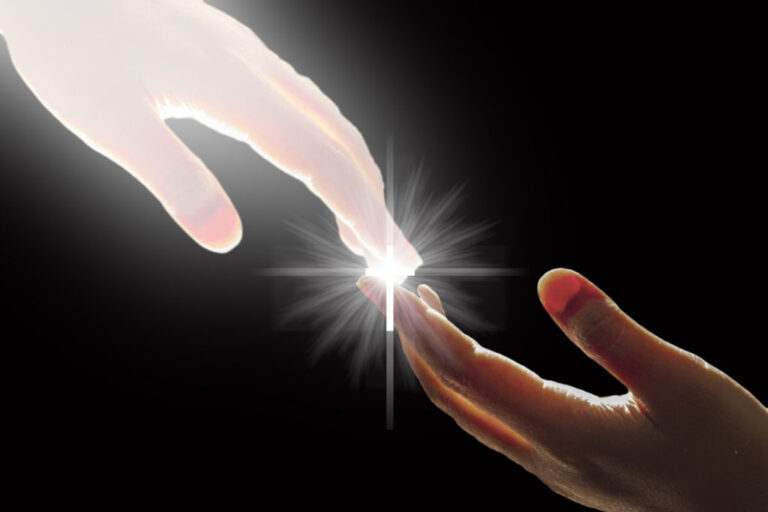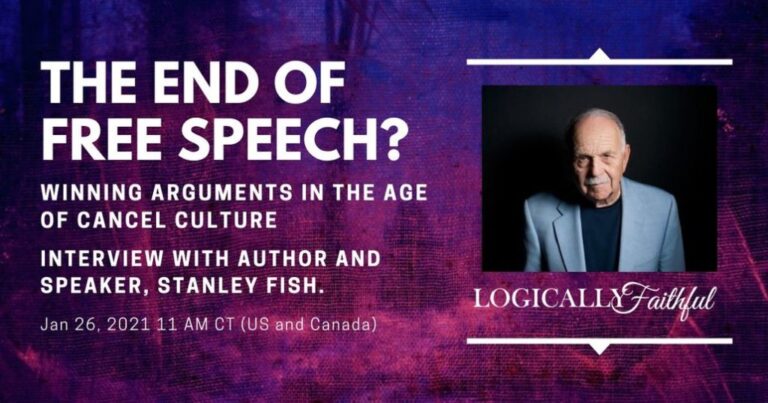Is Christmas pagan? One dear friend of mine does all he can to isolate his family from Christmas customs such as but not limited to Christmas trees, Santa Claus, reindeer, Mistletoes. Is he right? Much of the customs we have adopted are rooted in the secular and pagan world. So then why celebrate Christ’s birth?
My friend is not alone, many groups today do not celebrate it, they are, but not limited to, Jehovah’s Witnesses, The Black Israelites, The United Church of God. The Eastern Orthodox Church does not celebrate December 25th as the date either. The vast majority of the Orthodox churches use the Julian calendar, created under the reign of Julius Caesar in 45 BC. Thus their date is about 2 weeks later. and have not adopted the Gregorian calendar, proposed by Pope Gregory of Rome in 1582. See this for more detail.
I stand with John Piper who said, “I respect those who wish to separate themselves from the commercialization and be rigorously and distinctly Christian, who want to be disentangled from the world and any pagan roots that might lie beneath our celebration of Christmas…” However, the plot thickens!
First, they are right, Jesus may not have been born on December 25th. Sextus Julius Africanus (220 AD) speculated that it was December 25th and Pope Julius I (337-352) officially assigned that day as the Feast of the Nativity. It is also true that the pagan celebration of Saturnalia around the Winter Solace was that time of year. But was it done to replace it? Possibly but not necessarily. Authors like David Bennett argue that the ancient Christians did use Scripture, as a bases for the December birthdate. It is at least worth exploring. Many others such as St. Basil the Great began to celebrated on Dec 25th between 371 and 374 and the Bishop of Constantinople, St. John Chrysostom announced on December 20, 386, that the feast of the Nativity would henceforth be celebrated on December 25. See for more info.
The New Testament, or specifically the Gospels, make no mention of the date, and multiple opinions and theories have arisen concerning it. People in the United States commemorate Washington’s and Lincoln’s birthdays on the third Monday of February, even though Washington’s was February 22. So this is not an isolated issue.
The Christian Research Institute makes some valid points about this.
But what of the fact that December 25 was the date of a pagan festival? Does this not prove that Christmas is pagan? No, it does not. Instead, it proves that Christmas was established as a rival celebration to the pagan festival. That is, what Christians did was to say, “Rather than celebrate in immorality the birth of Mithra, a false god who was never really born and who cannot save you, let us celebrate in joyful righteousness the birth of Jesus, the true God incarnate who is the Savior of the world.” Sometimes it is urged that to take a pagan festival and try to “Christianize” it is folly. However, God Himself did exactly that in the Old Testament. Historical evidence shows conclusively that some of the feasts given to Israel by God through Moses were originally pagan agricultural festivals, which were filled with idolatrous imagery and practices.[The New Encyclopedia Britannica: Macropaedia Vol. 4 (Encyclopedia Britannica, 1981), p. 601.] What God did, in effect, was to establish feasts which would replace the pagan festivals without adopting any of the idolatry or immorality associated with them. It would appear, then, that in principle there is nothing wrong with doing so in the case of Christmas.
Did you know that it was Christians who outlawed the celebrations of Christians? See the Puritan War on Christmas, for a detailed history of this. Yes, in 1644 the “Christmas” celebrations had become filled with drinking and promiscuity much like Mardi Gras today.
Remy Melina, wrote
All Christmas activities, including dancing, seasonal plays, games, singing carols, cheerful celebration and especially drinking were banned by the Puritan-dominated Parliament of England in 1644, with the Puritans of New England following suit. Christmas was outlawed in Boston, and the Plymouth colony made celebrating Christmas a criminal offense, according to “Once Upon a Gospel” (Twenty-Third Publications, 2008). See here for more info.
See this short 3 minute video for some fascinating information on the origin of some Christmas celebrations.
The History Channel has many of these short videos filled with helpful information
What about Santa? Did you know why his clothes are red? It’s because of a Coca Cola ad in 1931!
Nevertheless, we should celebrate Christmas, or Advent, a season of preparation for the coming of the Messiah, for many reasons, but for now, here are three.
1) It is a special day. People tell me “everyday is special.” If everyday is special, then no day is. If I love every woman like I love my wife, then the reality is that I will love none. Being special means being set apart, which is the root meaning of Holy. So next time someone tells you happy holidays, wish them a happy “holy-day” as well. For that is what it means. It is the joyous occasion of the birth of the God into a human being–what theologians call the Incarnation and what most call the “Son of God.” The birth of Jesus, is the most important birth-day in history, why ignore such a special event? Celebrating it is a expression of joy and the cumulation of that joy. With that said, it is not obligatory–and we ought not judge those who do or do not celebrate it.
2) The angels celebrated His birth, and we should, like them, celebrate the joyous occasions. Consider, the famous Hymn, “Hark! the herald angels sing”
“Glory to the newborn King”
Peace on earth, and mercy mild
God and sinners reconciled!
Joyful, all ye nations rise,
Join the triumph of the skies
With th’angelic hosts proclaim,
“Christ is born in Bethlehem!”
Hark! the herald angels sing,
“Glory to the newborn King!”
It comes from the Bible, yes the celebration in the Bible. See Luke 2:8-14.
3) Christmas does not have pagan origins, although many of the rituals and symbols behind it, including the day it is celebrated may have. We celebrate the origin of it, the God-Man, behind it and the salvation is symbolizes, not the pagan celebrations it may have replaced. Gregory Koukl wrote a nice piece on this issue here. His point was that Christmas does not have pagan origins, but there are winter celebrations that are pagan. If we dismissed these customs because of their pagan origin then we should also dismiss wedding rings, weddings, chairs, Western calendars, funerals, days of the week–for many were created by pagans.
We don’t have to goto the extreme that the puritans did or the ways of the pagans. Balance is the key. In the Scriptures, the Apostle Paul talks about something the first-century gentile Christians struggled with. They were told to avoid meat that had been sacrificed to pagan idols (Acts 15:29). But Paul told the Corinthians that they could eat meat, even though it may have been sacrificed to an idol (1 Cor. 10:25). He told them not to eat in the pagan temple. In other words, he told them to avoid blatant paganism, but they did not have to superstitiously avoid everything that paganism might have touched at some time in the past. See this more details.
For all truth is God’s truth, even that of the pagans. We must not conclude that everything pagan is de facto wrong. For example; after reading Cicero’s Hortensius, Augustine, writing to God, said,
“I yearned for immortal wisdom, and I began in order to return to thee…How did I burn, O my God, how did I burn with desire to soar from earth to thee, and I knew not what Thou wouldst do with me. For with Thee is wisdom. But love of wisdom is in Greek called philosophy, and with this that book inflamed me.” [Augustine, Confessions chap 3:4.7]
I recommend a books on this issue, Eternity in their Hearts, by Don Richardson, where Richardson argues that God has placed his truth in the hearts of all religions, even pagan ones, (and no, he does not advocate universalism or relativism of the gospel).
 The Jehovah’s Witnesses’s (JWs) claim that Jesus commanded that we commemorate his death, not his birth.—Luke 22:19, 20. But if you read that passage, it says to celebrate his death, but it does not command us to not celebrate his birth. The real reason the JW’s don’t celebrate Jesus’s birth on Christmas, is because they are against celebrating any birthday–again because of the pagan origins. By the way the JW’s did change their position on this issue. See here.
The Jehovah’s Witnesses’s (JWs) claim that Jesus commanded that we commemorate his death, not his birth.—Luke 22:19, 20. But if you read that passage, it says to celebrate his death, but it does not command us to not celebrate his birth. The real reason the JW’s don’t celebrate Jesus’s birth on Christmas, is because they are against celebrating any birthday–again because of the pagan origins. By the way the JW’s did change their position on this issue. See here.
What do we do with this? The words of Scripture would be helpful here:
“One man considers one day more sacred than another; another man considers every day alike. Each one should be fully convinced in his own mind. He who regards one day as special, does so to the Lord….You, then, why do you judge your brother? Or why do you look down on your brother? For we will all stand before God’s judgment seat” (Rom. 14:5-6, 10; NIV).
Please reflect upon following few lyrics of a famous and profoundly beautiful hymn from 1991 that points us back to the true reason for our celebration on Christmas.
Mary did you know?
Mary did you know that your baby boy
Will one day walk on water?
Mary did you know that your baby boy
Will save our sons and daughters?
Did you know that your baby boy
Has come to make you new?
This child that you’ve delivered
Will soon deliver you
Mary, did you know that your baby boy
Will give sight to a blind man?
Mary, did you know that your baby boy
Will calm a storm with his hand?
Did you know that your baby boy
Has walked where angels trod?
And when you kiss your little baby
You’ve kissed the face of God
Oh, Mary did you know …..
Read more: Kenny Rogers – Mary Did You Know Lyrics | MetroLyrics
And finally the consider the words of Fr. Antony Bassoline, who wrote very elegantly the following :
Unfortunately most of society has reverted to celebrating the pagan winter holiday under the excuse of celebrating the birth of Christ. The Romans had their Saturnalia, but modern man has his Santa, reindeer, drinking parties and materialism to highlight his feast. In spite of all of this Christians are still called to celebrate joyfully in the Spirit, the coming of the Messiah. As the Christians of old celebrated under the guise of Saturnalia, so the modern Christian must still celebrate the true feast as the rest of our society keeps its pagan winter holiday. The Church at one time conquered and transformed that pagan holiday into the sublime celebration of the coming of the Sun of Righteousness. She still is challenged to transform and transfigure and to proclaim that coming and to lead men beyond tinsel and cheap lights to the true meaning of this holiday: the glorification of the true Gladsome Light of the Holy Glory of the Immortal Father, heavenly, holy, blessed Jesus Christ.
What do you think? Should an event’s origin or the circumstances surrounding it, be it pagan or not, stop us from celebrating?





What comes to mind after reading the themes contained within this post is a holiday movie I recently watched. Although, the end of the movie embraces the notion of Christmas separate from religious ideology, “Christmas With the Kranks” gives comical insight toward Pagan consideration.
-Has anyone seen this movie?
-What Pagan considerations do you gain from watching?
Alicea
Hello Alicea
Thanks for your thoughts. I have not seen this movie. What did you think of it? It seems so many secular Christmas movies are about anything but Christ, it seems.
Khaldoun
Hi K
Thank you for sharing this well balanced post.
I agree with your approach, surely you may also agree with me that all these celebrations are standised depending on who/where was/is in power and control some parts of the world. I have also attached pictures as references.
If it is a pagan practice, it won’t have same meaning to those who are at the Southern Hemisphere. If it is a Christian celebration created to oppose the pagan practice, then you may agree with me that is more political than celebrating the birth of Jesus.Same as the image of Jesus as most Christian hold the strong view that the well known images of Jesus are the true images of Jesus. Hollywood or movies can be political if they want.
I wish the intentions of most Christians were to enlightene others in a parallel approach that you are expressing here.
Thanks for reading!
Hello,
I really like this article; it gave me much information about
Christmas. I always have the same question that how the people know Jesus
actually born on December 25th. I am surprised that Christians was
outlawed the celebrations. I think
Christmas is not only Christian celebration for Jesus’s birth, but also is
Pagan’s event. Nowadays, Christmas become more and more commercialization.
During Christmas, every store has promotion and even more than the Black
Friday. For me, as a pagan, I also celebrate Christmas and it is very
meaningful to me. Christmas is sharing love and hope with family and friends.
First off I want to mention that I listen to Christmas music in the heat of summer and do not wait until snow comes to enjoy it. I love that you mention two of my favorite Christmas songs as well, I love how they speak to the joy of Christ’s birth and bring about that holiday feelings associated with the month of December. In regards to your article I have always through that Christmas was the offshoot of and developed overtime from pagan celebrations. Instead come to find Christmas happen completely separate from any pagan holiday. Rather they just happen to take place around the same time. My family were never the ones to go to church on a major holiday like Christmas so there was never an associated with Christ’s birth on December 25th for my family at least. Just like some people would rather remove themselves from celebrating due to religions reason; other people celebrate Christmas the best way they can. This coming Christmas I am going to try to focus on what Christmas means as a whole and not be blinded by its commercialism so thank you very much!